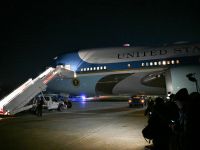Corporate Travel Predictions for 2025: What’s Held True, What’s Changed

At the start of 2025, industry forecasts pointed to stabilising inflation, a cautious embrace of generative AI, deeper C-suite collaboration and continued consolidation among travel management companies. Now, with the second half of the year unfolding, it’s clearer which predictions have held and which have shifted, creating both challenges and opportunities for business travel and finance leaders.
For travel managers, the implications stretch from programme optimisation to traveller experience, while CFOs are weighing cost control against investment in new technology and cross-functional priorities.
These four predictions show how the year’s biggest forecasts for corporate travel and finance are playing out, and how they’re bound to impact corporate travel trajectories globally.
Prediction 1:
Slowing inflation will increase travel opportunity
Inflationary pressures that began in 2023 drove higher spending throughout 2024. Expense data showed international travel increased nearly 6%, and overall expense transactions climbed 13% year on year. The expectation was that easing inflation in 2025 would allow flat budgets to go further.
So far, average transaction amounts have remained flat or slightly decreased across most categories. The 7th Annual Global Business Travel Survey found that despite persistent economic uncertainty and geopolitical challenges, most companies expect travel budgets to remain stable or increase. This is echoed by CFOs, travel managers, and business travellers alike. Looking ahead, the Global Business Travel Forecast from CWT and GBTA projects further price stabilisation over the next 18 months, giving corporate buyers more leverage to optimise programmes and unlock greater value.
Prediction 2:
Early caution would give way to greater trust in generative AI
The start of 2025 was expected to bring a healthy scepticism around AI in travel and finance. Analysts suggested that while AI might be accepted for recommendations or anomaly detection, business travellers would hesitate to let it handle bookings or expense submissions.
The shift has been faster than expected. The 2025 CFO Insights Survey found finance teams are automating tasks such as fraud monitoring, transcription, and pricing model design, with adoption rates far ahead of last year. Among travel managers, scepticism has also waned. In 2024, nearly a third believed business travel required a human touch; this year, that has dropped to 24%. For business travellers, nearly nine out of ten say they are comfortable with some AI-powered automation, provided their data is secure, training is available, and safeguards against bias are in place.
Prediction 3:
Finance leaders would collaborate across the C-suite to implement emerging technology
Analysts expected stronger collaboration between finance, IT and HR in 2025, particularly around cybersecurity, digital transformation and ESG. Evidence shows progress: 96% of CFOs say they are effective at securing cross-functional buy-in, and nearly nine in ten IT and HR leaders agree finance plays a strong communication role. Cybersecurity and sustainability have become priorities, with 60% of finance leaders ranking cybersecurity as a top investment and 48% focusing on ESG, up from 30% in 2024.
Yet execution is uneven, since only one in five CFOs plan to deepen collaboration with IT on cybersecurity, and more than half of HR leaders say limited data sharing remains the biggest obstacle. Collaboration is advancing, but gaps in integration show that finance leaders still have work to do to turn alignment into real impact.
Prediction 4:
Market consolidation and new booking standards will reshape corporate travel
Large travel management companies (TMCs) are merging, with deals like Amex GBT and CWT changing the competitive landscape. At the same time, airlines are pushing New Distribution Capability (NDC), a system designed to deliver continuous pricing and personalised offers. But instead of simplifying things, it has left many agencies running multiple booking platforms, creating added complexity and cost.
Traveller behaviour is also moving against expectations. Rather than fading, “bleisure”, which adds personal days onto business trips, is growing in popularity, especially among younger employees. Even as some companies tighten policies, more than a quarter of travellers are extending trips to save money and maximise flexibility.
Looking ahead
As 2025 draws to a close, the priority is turning shifting market conditions into measurable outcomes. For travel managers, that means using stabilised pricing to secure stronger supplier agreements and updating policies to reflect how employees actually travel rather than how companies expect them to. For CFOs, it means using travel data to track wider business performance, from employee engagement to risk exposure, while ensuring AI adoption is backed by governance that protects both budgets and trust. The real value lies not in whether predictions were accurate, but in how effectively organisations respond to them, making travel programmes more resilient, cost effective and aligned with enterprise goals.
Background Information
SAP
SAP is at the center of today’s technology revolution. The market leader in enterprise application software, SAP helps organizations fight the damaging effects of complexity, generate new opportunities for innovation and growth, and stay ahead of the competition.
Visit our corporate site to explore news, information for investors and analysts, career resources, SAP’s history, and more.






